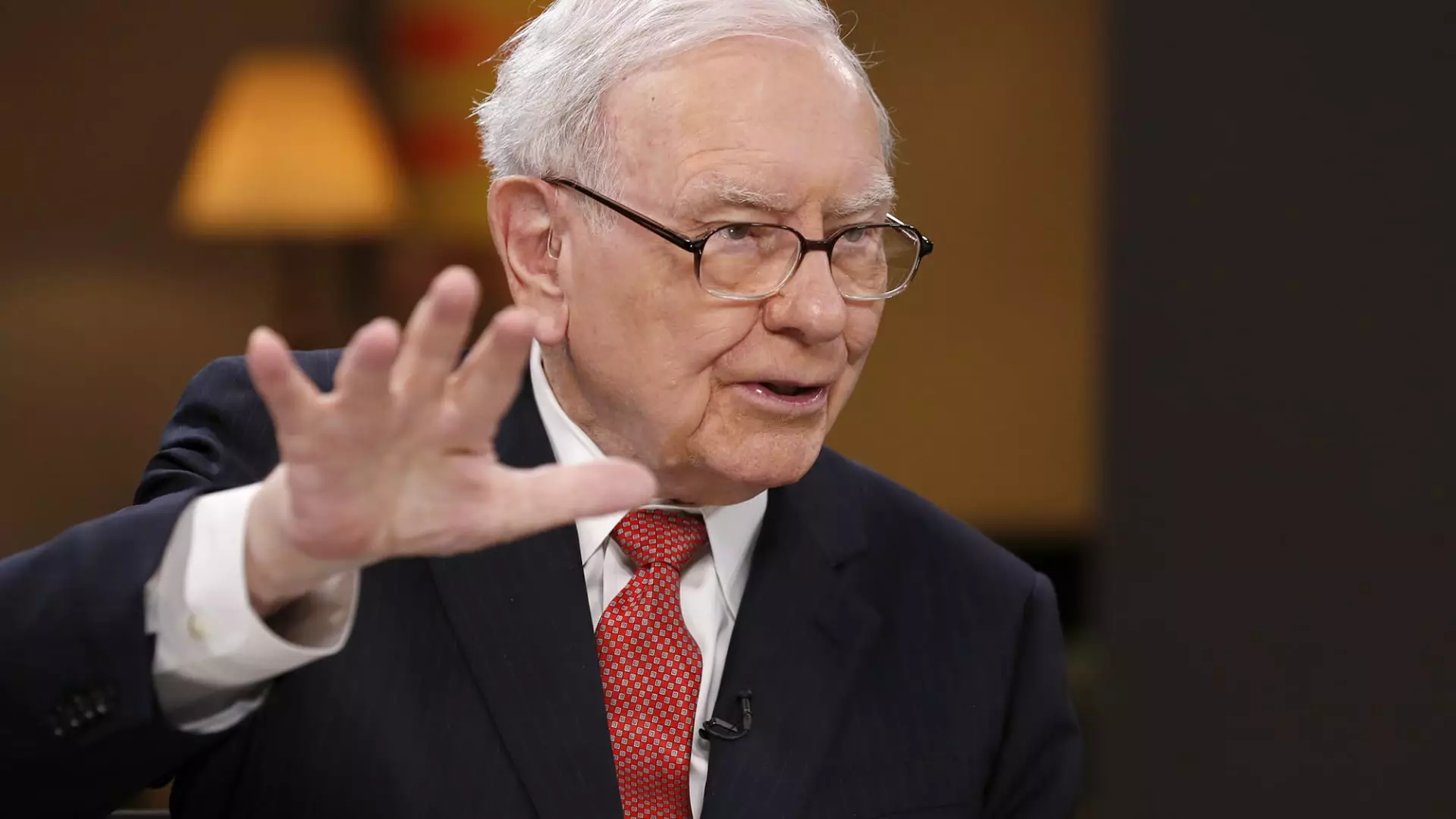In an era where wealth and inheritance often dictate social dynamics and familial legacies, Warren Buffett stands out as a curatorial force against the tide of dynastic wealth. With a staggering net worth of around $150 billion, the legendary investor and CEO of Berkshire Hathaway has embraced a philosophy that prioritizes philanthropy over inheritance. His recent actions reflect a deeper understanding of wealth’s potential impact on future generations and society at large.
Buffett’s avowed goal to give away 99% of his wealth showcases a radical challenge to traditional notions of inheritance. Rather than bestowing his significant fortune upon his children, Buffett has chosen to donate $1.1 billion in Berkshire Hathaway stock to four family foundations. This decision speaks volumes about his belief that unchecked wealth can adversely affect personal growth and familial relationships. In his own words, Buffett highlights the unpredictability of future generations, noting that the traits that enabled him to accumulate wealth may not be present in his descendants.
By naming three independent trustees to oversee his charitable endeavors, Buffett is laying the groundwork for a philanthropic legacy that allows for a broader distribution of wealth. These trustees are meant to facilitate his philanthropic vision in a manner that aligns with evolving societal needs rather than merely catering to the preferences of his children. This foresight suggests an understanding that today’s wealth is not necessarily synonymous with tomorrow’s responsibility, challenging the perception that financial succession is the ultimate goal of affluence.
Buffett’s suspicion of wealth dynasties offers critical insights into the systemic contagion of inherited wealth. He argues that such wealth often breeds complacency and detachment from the realities of the world, which can distort personal values and diminish the drive for self-improvement. He explicates these sentiments in a recent letter, expressing a fear that generational wealth could erode the qualities that foster determination and wellbeing.
The “Oracle of Omaha,” as he is affectionately known, warns against the unforeseen consequences of wealth in the hands of future generations. “Who can foresee the priorities, intelligence, and fidelity of successive generations?” he poses rhetorically, emphasizing the unpredictability of wealth’s influence over time. Such remarks shed light on a broader conversation regarding the responsibilities that accompany wealth, particularly in an age where socio-economic disparities are more pronounced than ever.
The decision to appoint independent trustees reflects Buffett’s intention to create a sustainable philanthropic model that can operate beyond his lifetime. While Buffett expresses confidence in his children—who are now 71, 69, and 66—he recognizes the need for an alternative management structure to ensure his wealth is used effectively after his passing. His rationale for selecting younger trustees is rooted in the belief that they will be better suited to navigate the complexities of contemporary philanthropy.
Buffett acknowledges that his children have gained valuable insights into large-scale philanthropy over the years. He has spent considerable time observing their actions, which has fostered a sense of trust in their decision-making capabilities. As he noted, the experience gathered through these years plays a pivotal role in preparing them for their future roles, should they be called upon to oversee the legacy he has constructed.
In this nuanced approach to philanthropy, Buffett also emphasizes the values instilled in his children, values that he believes would make their late mother proud. This aspect of his narrative highlights an essential facet of wealth: the moral compass that guides its management and distribution. It raises the question of whether financial acumen alone is sufficient for sustainable philanthropy or if it is equally about character and ethics.
Buffett’s efforts ultimately paint a picture of a man deeply conscious of the implications of his wealth. His plan to redistribute his fortune reflects not just a desire to give but a proactive stance in shaping a better society. The essence of his message is clear: wealth can either break or make future generations, and the path he has chosen aims to ensure it is the latter for many who will benefit from his philanthropic endeavors.
Warren Buffett’s philanthropic strategy extends far beyond his financial contributions; it is a deliberate effort to combat the detrimental effects of dynastic wealth. Through his insights and actions, he offers a profound lesson in the value of generosity, foresight, and the enduring influence of ethical stewardship.

